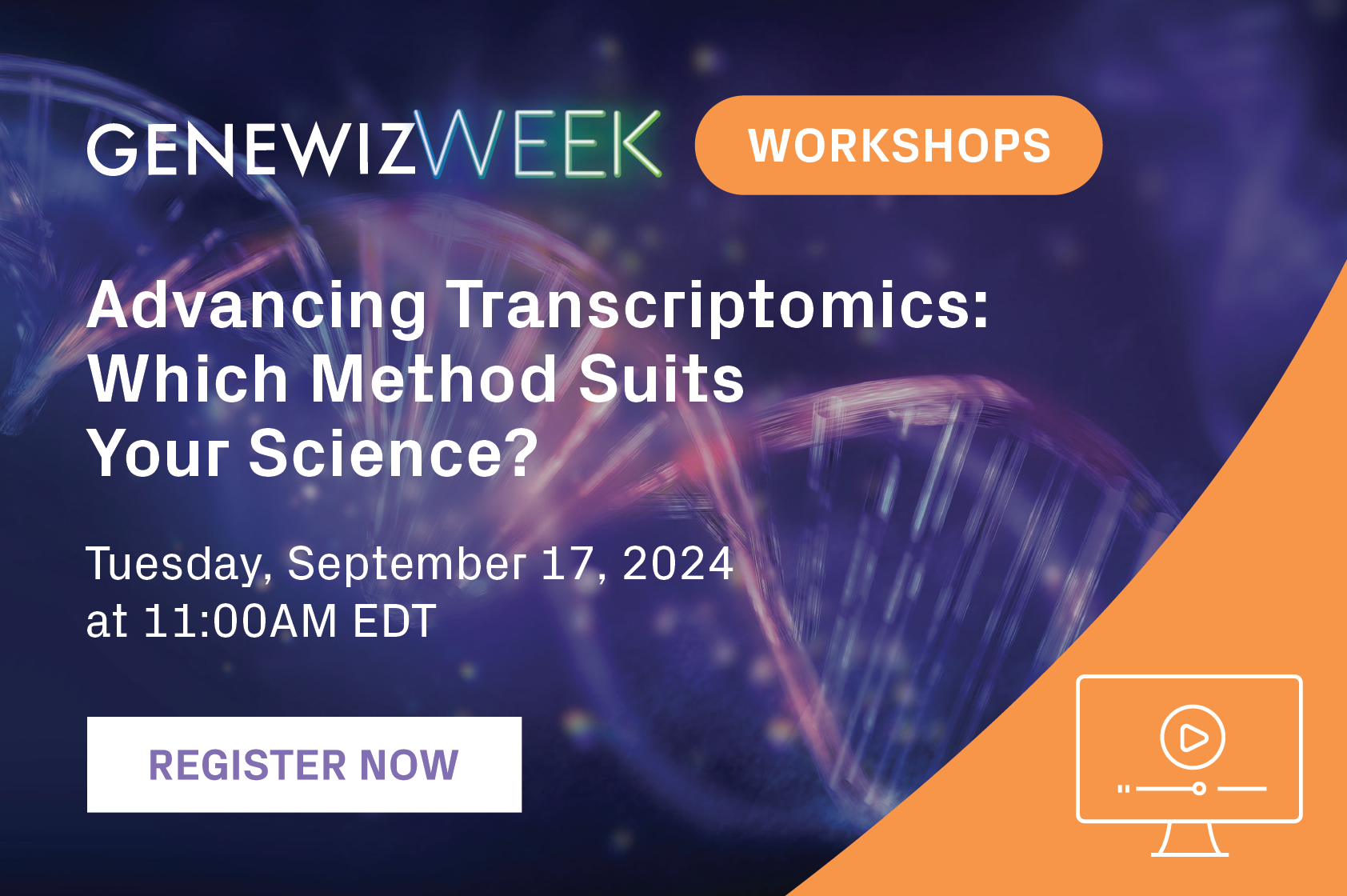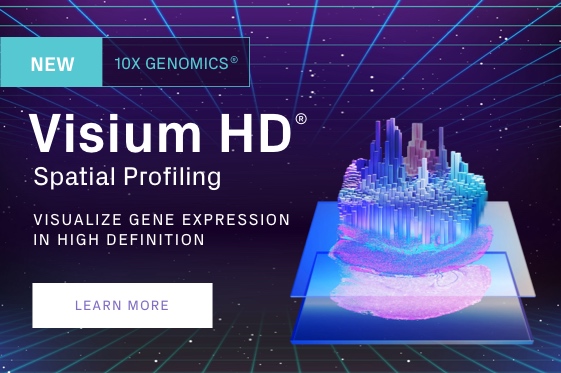What is AAV Gene Therapy?
Adeno-associated viruses (AAV) are the optimal vehicle for, and leading viral vector used in in vivo gene therapy clinical trials due to their high efficiency and enhanced safety in humans.
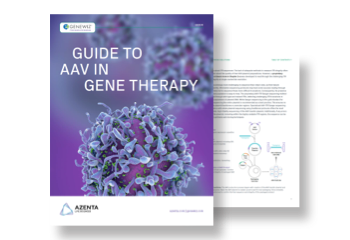
AAV-ANCED STRATEGIES
For Adeno-Associated Virus in Gene Therapy
✓ Reliable quality control and safety testing for AAV development
✓ Strategies to read through inverted terminal repeats in AAV
✓ High-fidelity methods for AAV plasmid prep and packaging
✓ Advanced sequencing for AAV quality and safety monitoring
NGS SOLUTIONS FOR AAV GENE THERAPY
Confirm Plasmid Sequences
Utilize our short-read amplicon sequencing for highly-accurate confirmation of AAV plasmid inserts, or confirm full-length recombinant AAV (rAAV) vector integrity at the single-molecule level with long-read amplicon sequencing.
Validate Packaged Material
Sequence-confirm rAAV vectors and identify DNA contaminants in AAV library preparation by employing the power of our short- and long-read whole genome sequencing solutions.
Quantify AAV Expression
Employ GENEWIZ qPCR, targeted sequencing, or RNA sequencing solutions at the RUO and CLIA levels to measure AAV expression of the target gene after infection.
Monitor Host Response
Stratify and characterize host-immune response during and after infection with GENEWIZ’s suite of RNA sequencing solutions, or use novel approaches including single-cell sequencing and spatial genomics.
Learn more about GENEWIZ additional adeno-associated virus (AAV) services for your cell and gene therapy research.
AAV GENOME SEQUENCING WORKFLOW
-

1. Sample
Preparation -

2. Library
Preparation -
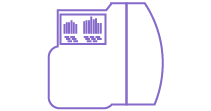
3. Sequencing
-
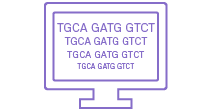
4. Bioinformatics
Analysis
NGS AAV FEATURES & BENEFITS
-
Superior Data Quality
Exceeding manufacturer’s benchmarks -
Real-Time Project Updates
Through our online system -
Ph.D.-Level Support
At every step
-
Trusted partner supporting over 150 top global pharmaceutical and biotech customers in their cell and gene therapy research
-
Optimized, automated, and scalable workflows with stringent quality control producing high-quality, consistent results
-
RUO and CLIA-grade, high-capacity and high-throughput sequencing for projects of virtually any size and sample type
-
Customized and extensive bioinformatics solutions with interactive, hands-on analysis
AAV NEXT GENERATION SEQUENCING TECHNICAL RESOURCES
-
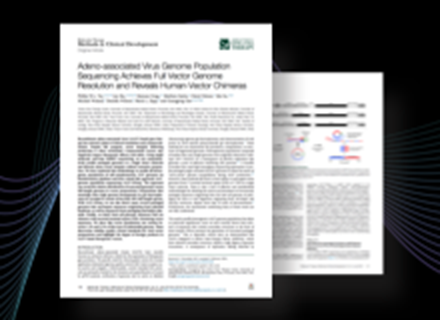
PUBLICATION
Adeno-associated Virus Genome Population Sequencing Achieves Full Vector Genome Resolution and Reveals Human-Vector ChimerasDiscover how researchers utilized single molecule, real-time (SMRT®) sequencing to profile rAAV-packaged genomes and assess full-length integrity for rAAV quality control.
-
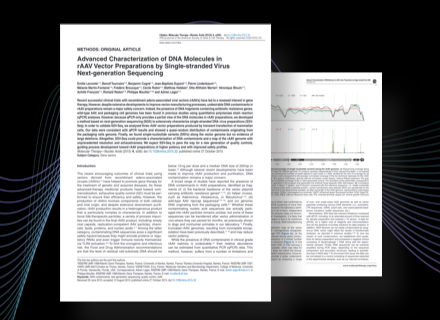
PUBLICATION
Advanced Characterization of DNA Molecules in rAAV Vector Preparations by Single-stranded Virus Next-generation SequencingIn this study, learn how short-read sequencing technology can extensively characterize the rAAV genome while simultaneously detecting the presence of DNA contaminants.
-
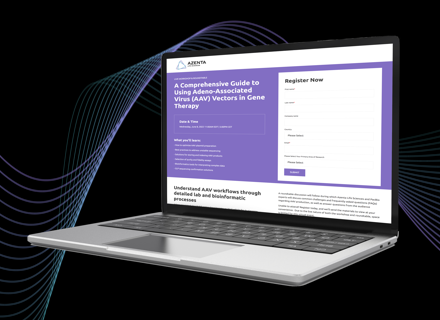
WORKSHOP & ROUNDTABLE DISCUSSION
A Comprehensive Guide to Using AAV Vectors in Gene TherapyWorking with AAV vectors can be challenging. In this on-demand workshop & roundtable discussion, you’ll gain a better understanding of the AAV development pipeline for gene therapy research and learn how to optimize upstream and downstream processes including AAV synthesis, sequencing, bioinformatics, and storage.
NGS PLATFORMS
For information on our NGS platforms as well as recommended configurations of your projects, please visit the NGS Platforms page. GENEWIZ from Azenta does not guarantee data output or quality for sequencing-only projects.

